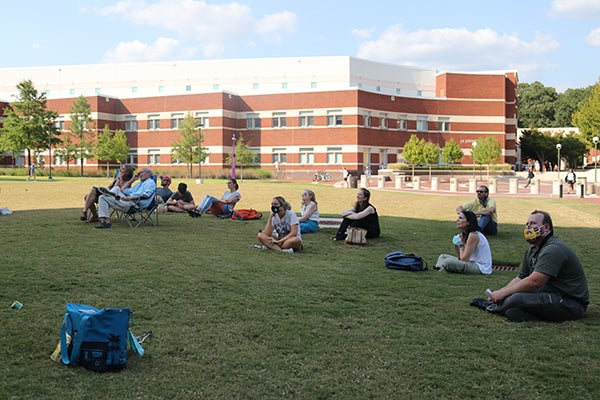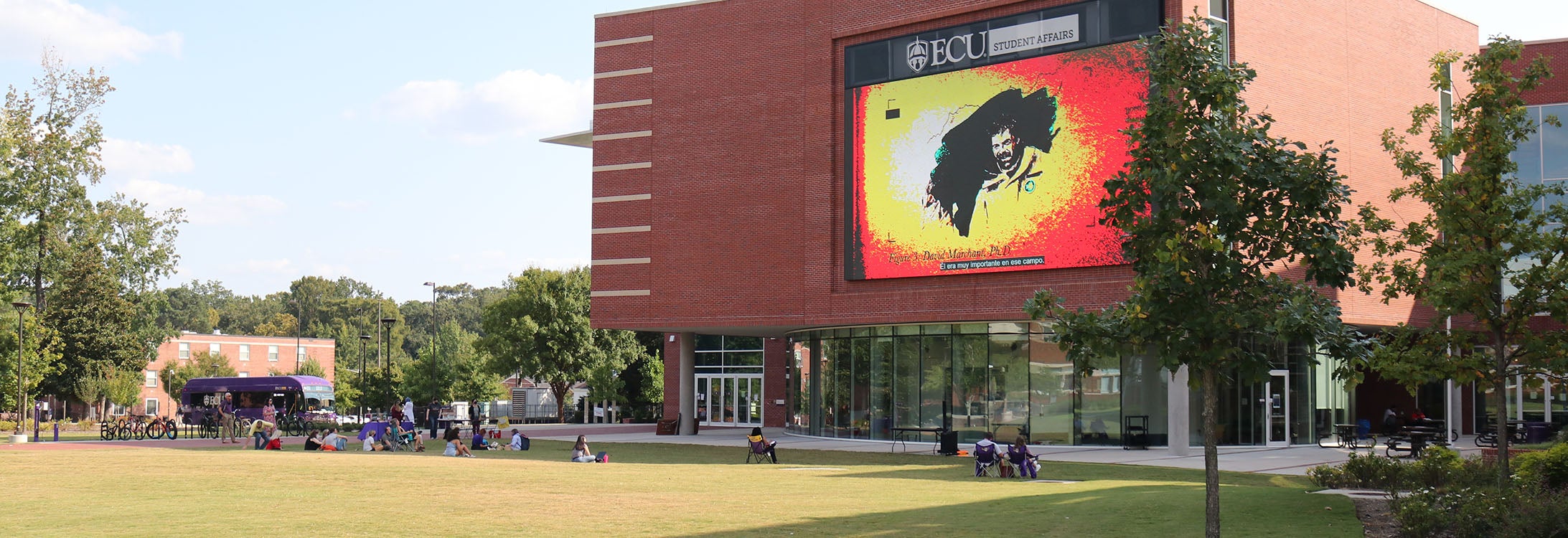Women scientists’ voices heard at film screening
The voices of leading women scientists were heard across East Carolina University’s campus Sept. 14 during a screening of “Picture a Scientist” on the Main Campus Student Center video board.
The film chronicles the stories of inequalities, harassment and discrimination faced by women scientists and researchers. Along with the challenges they’ve faced in the science, technology, engineering and mathematics fields, the film shares how they’re changing the workplace.
Advocates believe that sharing the stories of women who have faced struggles in the past will lead to more equitable opportunities in the future.

The “Picture a Scientist” screening was sponsored by the Graduate Women in Science chapter, the Women and Gender Office, THRIVE at ECU, and the Division of Research, Economic Development and Engagement.
“By showing films like ‘Picture a Scientist,’ we bring people together from all walks of life and give them an opportunity to learn from the lived experiences and stories of others.”
Cleland said her office works with students, faculty and staff to empower women and prepare them to serve as leaders. Part of that development includes sharing their experiences.
“Some of these women were the only scientist of their gender in their department,” she said. “There are real consequences to harassment in academia and science. Empowering women in science and other fields is really important, not just for women, but for everyone.”
Giuliana Roccisano, a junior geology major, said she’s noticed a lack of woman representation in scientific disciplines.
“Sometimes I’m the only woman in my class or lab,” Roccisano said.
Roccisano switched her major from physics to geology and has seen more representation of women in the field but said there’s still more work to do.
“I have seen some huge shifts, especially when holding other accountable for what they do or say,” she said. “There’s more of a call to change and correct behavior instead of protecting it.”
Cleland added that advocates looking to support women scientists can do so in a variety of ways.
“There’s always something to learn,” Cleland said. “Make sure that you’re listening to the women in your life when they share stories of harassment or sexism and amplify their voice. Marginalized groups often must repeat themselves multiple times in a room. Make sure you use your social power to give credit to their ideas and make sure they’re heard.”
Academic leaders can also do their part to bridge the equity divide.
“Make sure that you’re mentoring people that are different than you,” she said. “When your mentorship and promotion efforts all look and sound exactly like you, they’ll only ever be people in the field that look and sound exactly like you.”
“Picture a Scientist” can be viewed online through Joyner Library’s streaming page.
